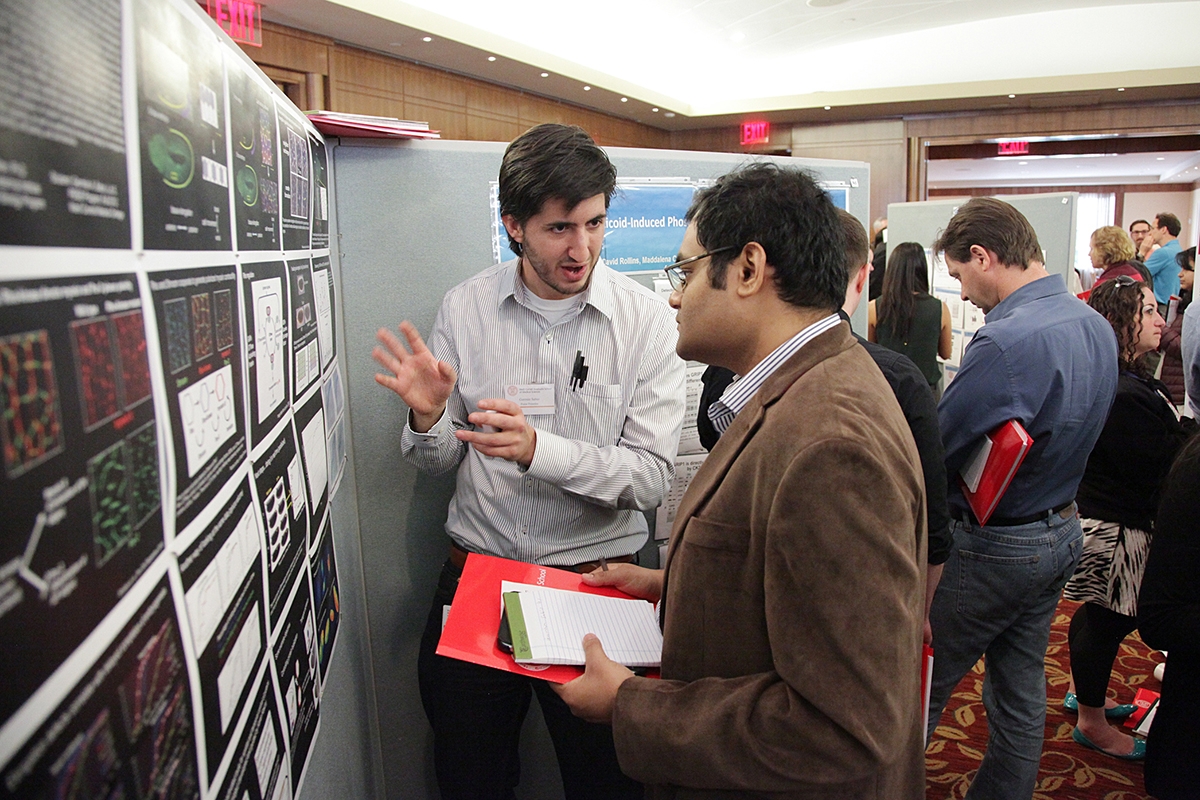Technological advances are transforming the biomedical sciences, opening doors to new MRI imaging techniques to improve patient diagnosis.
This environment for innovation is particularly invigorating to Weill Cornell Graduate School of Medical Sciences student Dr. Sarah Eskreis-Winkler, who’s pursuing a doctorate as part of her radiology residency at NewYork-Presbyterian Hospital (she received a medical degree from Weill Cornell Medical College in 2011).
She’s dedicated the past two years to exploring quantitative susceptibility mapping (QSM), a new MRI contrast technique that depicts and quantifies materials with strong magnetic properties like iron, calcium, and deoxyhemoglobin that appear in differing contrasts on a scan. The hope is that this technique will be used to better characterize diseases such as multiple sclerosis, atherosclerosis, and Parkinson’s disease, all of which involve those materials.
"My work focuses on how to generate high-resolution QSM images from lower-resolution, raw MRI data," Dr. Eskreis-Winkler said. "This could be used either to shorten scan time or to acquire higher-resolution QSM."

Doctoral student German Sabio, back, presents his research to post-doctorate associate Dr. Sayan Mondal.
She was one of more than 80 doctoral students to share their research findings during the 34th annual Vincent du Vigneaud Research Symposium on April 24. The full-day, student-run symposium featured oral and poster presentations spanning the disciplines, a keynote address from Dr. Kevin Tracey, president and CEO of the Feinstein Institute for Medical Research, as well as a meet-and-greet with Weill Cornell alumni who now work in industries including biopharmaceuticals, science publishing, writing, policy and biotechnology, among others.
"I think it’s great that the graduate school gives us the opportunity to present our work," Dr. Eskreis-Winkler said. "Sharing our research in an interdisciplinary setting can both spur the development of new ideas as well as foster research collaborations."
The annual symposium honors the legacy of Dr. Vincent du Vigneaud, a Nobel laureate and former chair of the Department of Biochemistry at Weill Cornell who was a fierce advocate for student scholarship. Today, it serves as a forum for students to exhibit their research, gain vital presentation experience and receive feedback about those skills.
"It’s extremely important to be able to communicate what we are doing here," said doctoral student Emma Laird, who along with classmate Robert Frawley organized the symposium. "We are all working towards bettering the health of the general population, so being able to explain what you are doing in a variety of ways is very important. Otherwise, it never leaves your little bubble."
The following awards were presented to doctoral students who participated in the Vincent du Vigneaud Symposium:
2014 Vincent du Vigneaud Awards of Excellence
- Oral Presentation
Christina Maksymiuk, "Characterization of 2-hydroxy-3-oxoadipate synthase (HOAS) in Mycobacterium Tuberculosis Metabolism." (Professor Carl F. Nathan) - Poster Presentation
Wei Shao, "Functional Dissection of Centriolar and Its Derived Structures in the Developing Neocortex." (Professor Song-Hai Shi)
2014 Vincent du Vigneaud First-Year Award
Maria Bustillo, "Spatial Organization of Gene Expression is Maintained During Cell Intercalation in the Expanding Drosophila Melanogaster Embryo." (Professor Jennifer A. Zallen)
2014 Vincent du Vigneaud Second-Year Award
- Charles Ferranti, "Ionizing Radiation-Induced "Nanopores" Signal Acid Sphingomyelinase Activation and Cell Surface Translocation." (Professor Richard Kolesnick)
- Bonnie Quach, "Mechanism of Preventing Doxorubicin-Induced Mitochondrial Toxicity with Cardiolipin-Targeted Peptide, SS-31." (Professor Hazel Szeto)

